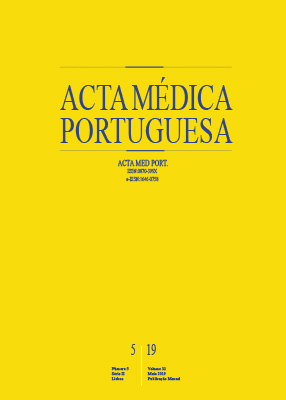Use of Electronic Medical Records for Research: New Ethical Challenges and Possible Solutions
DOI:
https://doi.org/10.20344/amp.11280Keywords:
Data Anonymization, Electronic Health Records, Ethics Committees, Clinical, Health Records, Personal, PortugalAbstract
Some clinicians feel that Ethics Committees act as a blockade to observational clinical studies. In the case of retrospective studies some have tried to solve this problem by reducing this sensitive data to simple administrative data in the hands of the government. Others see the new European General Data Protection Regulation 2016/679 (European Union) as being more liberal than the Portuguese Law nº 21/2014, April 16th (Clinical Research Law). Both solutions presume participant consent from his / her silence, even if nobody truly tried to specifically inform him / her. Such views do collide with the guarantees of protection of patient’s ethical rights. In this article we propose an ethical alternative to those positions.
Downloads
Downloads
Published
How to Cite
Issue
Section
License
All the articles published in the AMP are open access and comply with the requirements of funding agencies or academic institutions. The AMP is governed by the terms of the Creative Commons ‘Attribution – Non-Commercial Use - (CC-BY-NC)’ license, regarding the use by third parties.
It is the author’s responsibility to obtain approval for the reproduction of figures, tables, etc. from other publications.
Upon acceptance of an article for publication, the authors will be asked to complete the ICMJE “Copyright Liability and Copyright Sharing Statement “(http://www.actamedicaportuguesa.com/info/AMP-NormasPublicacao.pdf) and the “Declaration of Potential Conflicts of Interest” (http:// www.icmje.org/conflicts-of-interest). An e-mail will be sent to the corresponding author to acknowledge receipt of the manuscript.
After publication, the authors are authorised to make their articles available in repositories of their institutions of origin, as long as they always mention where they were published and according to the Creative Commons license.









